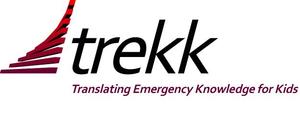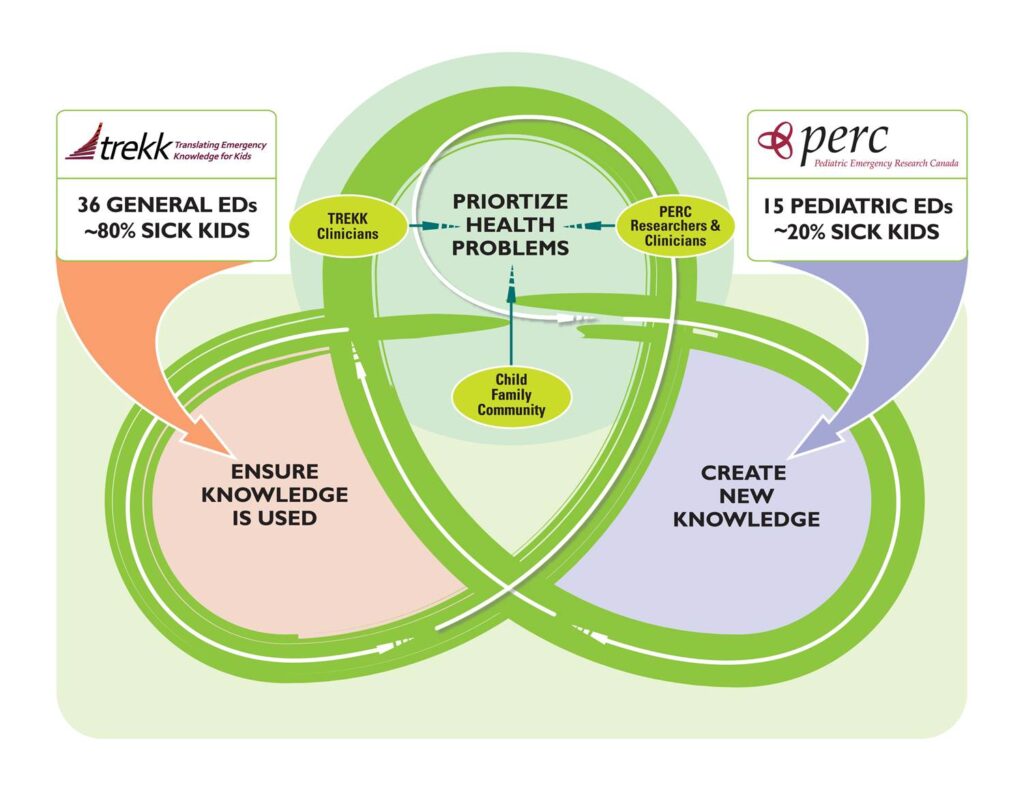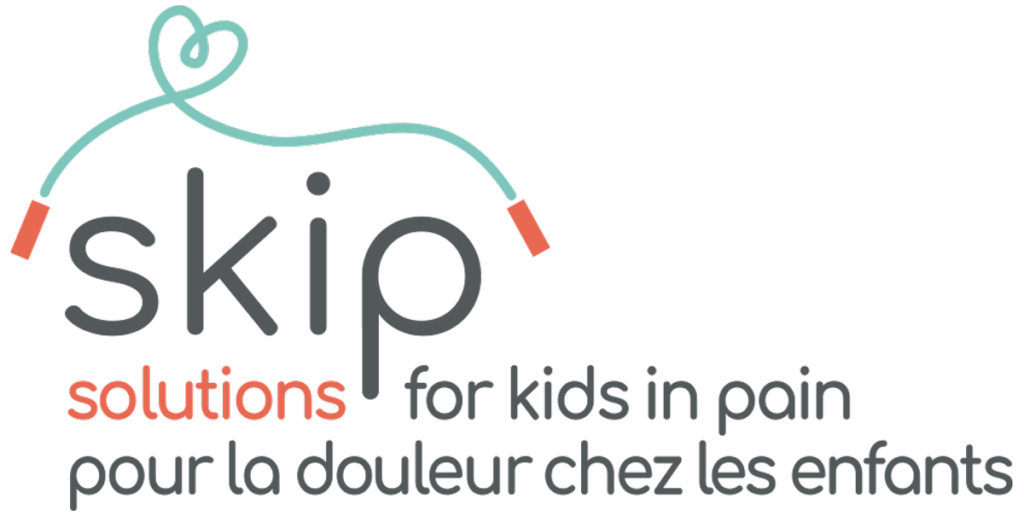Affiliated Networks
PERC is associated with a number of other outstanding research networks nationally and internationally.

TRanslating Emergency Knowledge for Kids (TREKK)
Formed in 2011, TREKK is a collaborative national network of pediatric emergency medicine experts and 36 general emergency departments dedicated to ensuring the latest knowledge in the emergency care of children is rapidly put in practice in general emergency departments. TREKK takes the critical evidence developed by PERC , packages it in unique ways, and then using modern technology, disseminates directly to all staff (physicians, nurses, allied health professionals) at general emergency departments across Canada where the majority of children are treated. TREKK established resource development infrastructure that brings together evidence synthesis experts, leading child health researchers, communication specialists and clinicians within a variety of specialties to identify, review, curate and create evidence-informed resources - read more in the Canadian Journal of Emergency Medicine (2021) in the publication "Translating Emergency Knowledge for Kids (TREKK): using research evidence to improve outcomes for children and families in emergency departments across Canada".
How PERC and TREKK Work Together


Pediatric Emergency Research Networks (PERN)
PERN is comprised of representative hospitals from the six major national and international Pediatric Emergency Medicine research networks located in Europe, the Middle East, North America and Australasia. This relationship enables dialogue between member networks and collaboration between large numbers of researchers and investigative sites across the world. PERC is one of the founding member networks.

Alberta Research Centre for Health Evidence (ARCHE)
The Alberta Research Centre for Health Evidence (ARCHE) is located within the Department of Pediatrics at the University of Alberta. The mandate of ARCHE is to Produce high-quality evidence syntheses aimed at priority issues in health Educate health providers and assist them in producing evidence syntheses Support and foster the development of evidence-based practice.

Maternal Infant Child and Youth Research Network (MICYRN)
MICYRN was founded in 2006 as a collaborative national initiative to build capacity for high quality applied health research in Canada. Early environmental scans revealed that there was a large amount of research being conducted by teams with investigators based at multiple sites across the country. Each of these groups was working independently, in silos, facing similar barriers to conducting multi-jurisdictional research and implementing findings to improve health care. In January of 2011, MICYRN incorporated as a federal not-for-profit society linking 19 health research organizations based at academic health centres in Canada and now has over 20 affiliated practice-based research networks. PERC is one of the affiliated research networks.

Translating Evidence in Child Health to Enhance Outcomes (ECHO)
Translating Evidence in Child Health to Enhance Outcomes (ECHO) is a research program led by Dr. Shannon Scott and housed at the University of Alberta, Faculty of Nursing. The ECHO research program is focused on improving health outcomes for children with acute health conditions through the application of best available evidence – a process known as knowledge translation (KT).

KidsCAN Trials
KidsCAN's goal is to Improve child health outcomes by developing a national network to conduct high quality pediatric clinical trials focused on enhancing and translating evidence for medications used in children. This will include phase 2 + 3 regulatory trials and pragmatic randomized comparative effectiveness studies using innovative clinical trial designs and existing real-world data. Children deserve the best chance at health through the provision of medicines and treatments specific to them.

Solutions for Kids in Pain (SKIP)
Solutions for Kids in Pain (SKIP) is a national knowledge mobilization network incorporated as a not-for-profit organization. SKIP's mission is to improve children's pain management by mobilizing evidence-based solutions through coordination and collaboration. Scientists have found many ways to manage pain, but most people don’t know about these treatments. This matters because pain that isn’t treated well harms children’s brains and bodies, costs the healthcare system time and money, is a struggle and can be traumatic for families and health professionals.
